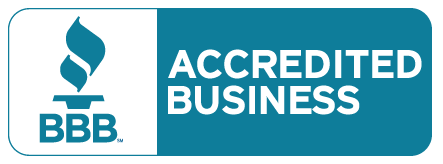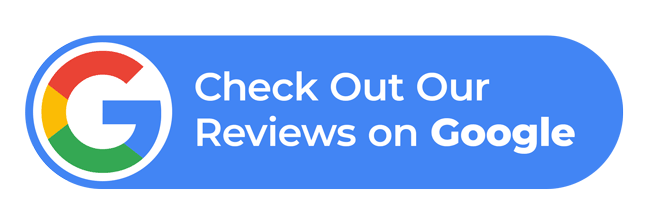Running a small business is no small feat. From managing day-to-day operations to keeping customers satisfied, entrepreneurs juggle countless priorities. Yet in the digital era, one factor consistently shapes how—and whether—a business grows: how easily people can find you online.
Search engine optimization (SEO) is no longer optional for small businesses that want to compete. It’s a powerful tool that helps your business appear when potential customers search for products or services like yours.
In this blog, we’ll explore mistakes small business owners make when using SEO, why local SEO is crucial, what you can expect to pay for SEO services, and whether it’s a worthwhile investment. Plus, we’ll share a practical SEO checklist to help you plan your strategy for 2025 and the years ahead.

What is Small Business SEO and Why is it Important?
At its core, Search Engine Optimization (SEO) is the process of making your website and your entire online presence more visible in search engines like Google. For small businesses, this means appearing when local customers search for terms like “best coffee shop near me” or “affordable accounting services.”
SEO works by helping search engines understand what your website is about so it can show your pages higher in search results when people look for related topics. These positions in search results are known as rankings. The higher you rank, the more likely customers are to visit your website.
Why is SEO important for small business? Because over 90% of online experiences begin with a search engine. If your website isn’t showing up, you could be missing out on customers who are actively looking for what you offer.
Local SEO is especially critical for small businesses that rely on community foot traffic or service areas. Showing up in Google’s local pack, maps, and organic listings can mean the difference between thriving and simply surviving.
Small Business SEO Checklist: Essential Steps for 2025
Whether you handle SEO in-house, hire a freelancer, or partner with an agency, it’s important to follow a solid digital marketing checklist. These key components can help you avoid the common mistakes small business owners often make with SEO:
Keyword Research: Know what people are searching for
Start by thinking about the services or products you offer and how customers might search for them online. Use keyword tools such as Ahrefs, Semrush, or Google Keyword Planner to find real search terms and check how competitive they are in your local area. Choosing the right keywords helps you connect with people who are ready to buy.
On-Page SEO: Make each page easy for Google to understand
Optimize your page titles, meta descriptions, URLs, and headings so search engines know what each page is about. Keep every page focused on one main topic, and avoid cramming in too many keywords. Clear on-page SEO helps both Google and your customers quickly understand your content.
Off-Page SEO: Build trust through quality links
Getting links from reputable websites signals to Google that your business is trustworthy and relevant. Focus on building relationships with local businesses, industry sites, or community organizations. Quality backlinks can help improve your rankings—your position in search results—over time.
Optimized Content: Answer your customers’ questions
Create helpful, original content that speaks directly to your customers’ needs and interests. This could include blog posts, guides, FAQs, or service pages. Valuable content not only attracts visitors but also keeps them engaged and coming back for more.
Technical SEO: Keep your website running smoothly
Make sure your website loads quickly, works well on mobile devices, and uses secure connections like HTTPS. Search engines also need to be able to crawl and index your pages without any technical issues. Solid technical SEO supports higher rankings and a better experience for your visitors.
Monitoring and Goal Tracking: Check what’s working and adjust
Track your rankings, website traffic, and leads to see how your SEO efforts are performing. Set clear goals and measure progress over time. Use this data to fine-tune your strategy and keep moving closer to your business objectives.
SEO takes time and consistent effort. If you’re short on time or resources, working with an SEO agency can help you get better results and allow you to focus on running your business. Funnel Boost Media partners with small businesses nationwide to create effective, data-driven SEO strategies.
Is SEO Worth it for Small Businesses to Invest?


It’s natural to wonder: Does SEO work for small business? Absolutely—but it’s not instant.
Recent data shows that businesses ranking on the first page of Google capture over 70% of search traffic clicks. Meanwhile, the majority of users never scroll past page one. That’s why SEO is so valuable—it positions your business in front of customers actively searching for what you provide.
But it’s crucial to understand the timeline. SEO isn’t a one-time task; it’s an ongoing effort that may take several months to show results. Factors like how competitive your market is, the quality of your website, and how often you produce fresh content all influence how quickly you’ll see a return on your investment.
It’s also worth considering that if you don’t start now, you may wish you had by the time you read this again. SEO is quickly becoming standard practice and a powerful way for competitors to get ahead.
How much does SEO cost for a small business?
Budgets vary widely, from a few hundred dollars monthly for basic local optimization to several thousand for more aggressive campaigns. Ultimately, investing in SEO is about securing long-term visibility and growth rather than quick wins.
Finding the Best SEO Help: Agency, Freelancer, or In-House?
When it comes to managing SEO for your business, there are several ways to approach it. Each option has different benefits and challenges depending on your needs and budget.
In the next section, we’ll explore what level of SEO support might be right for you—whether that’s an agency, a freelancer, or an in-house team.
Pros and Cons of Agency vs. Freelance vs. In-House
When it comes to handling SEO for your business, there are a few different paths you can take. Each option has its own advantages and drawbacks, depending on your budget, time, and goals. Here’s a quick look at how agencies, freelancers, and in-house teams compare:
Agency SEO
- A team of experts working together
- Uses advanced tools and detailed reports
- Can handle more work as your business grows
- A Dedicated Project Manager
- Usually costs more than hiring one freelancer
Freelance SEO
- May be a more affordable option
- Flexible and easy to hire for small projects
- Has limited time and resources
- Depends on one person’s skills and experience
In-House SEO
- Full control over your SEO plans
- Works closely with your business every day
- Costs more to hire and train staff
- May not have as much outside experience or industry variety
Get Professional SEO Support with Funnel Boost Media
At Funnel Boost Media, we know small businesses have a lot to juggle when it comes to standing out online. As a full-service SEO agency, we handle everything from keyword research and technical audits to content creation and local SEO, all focused on delivering real results.
If you’re wondering whether SEO makes sense for your business or want a free proposal based on your goals, get in touch with Funnel Boost Media today. Let’s make 2025 the year your business gets noticed online.





